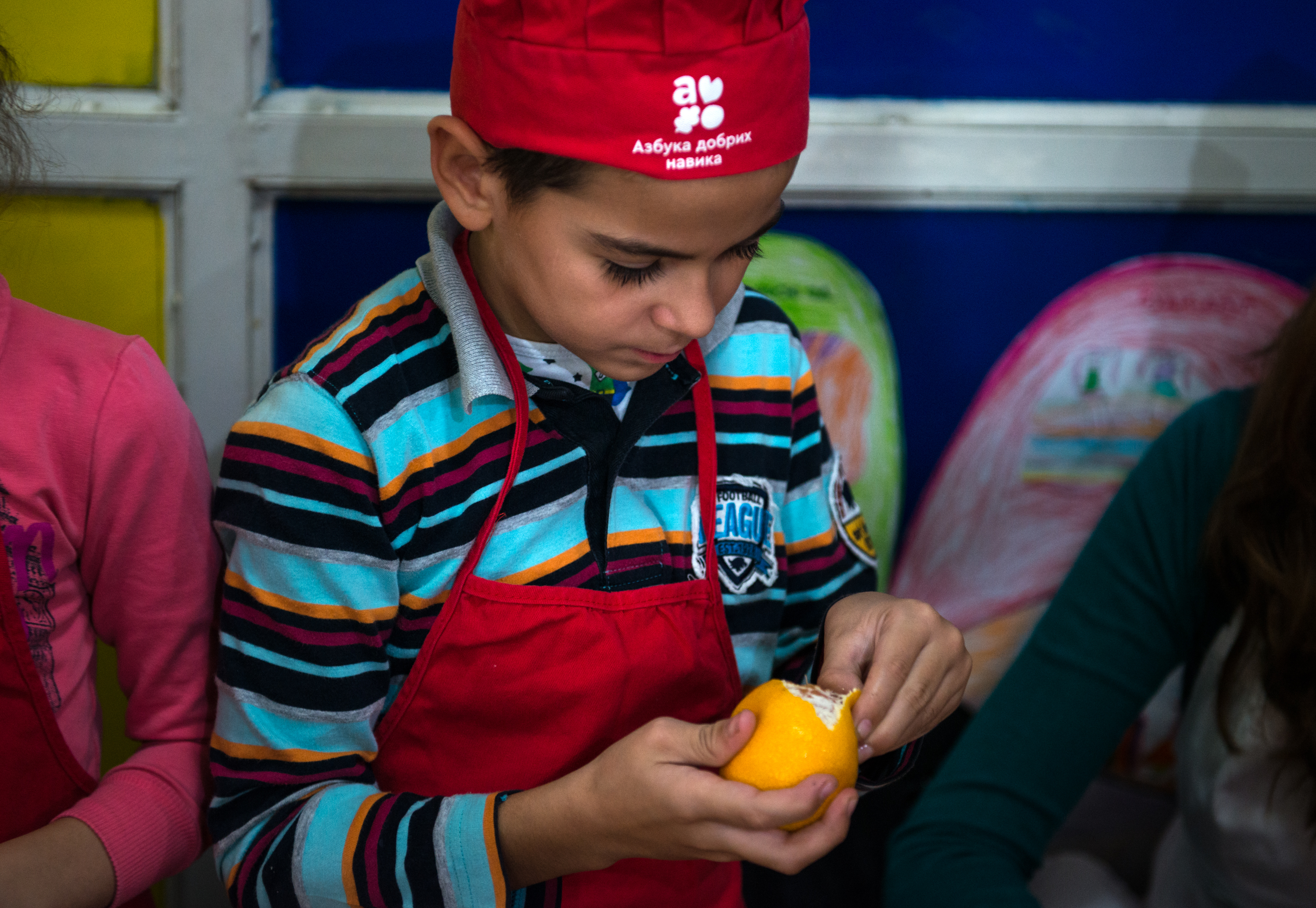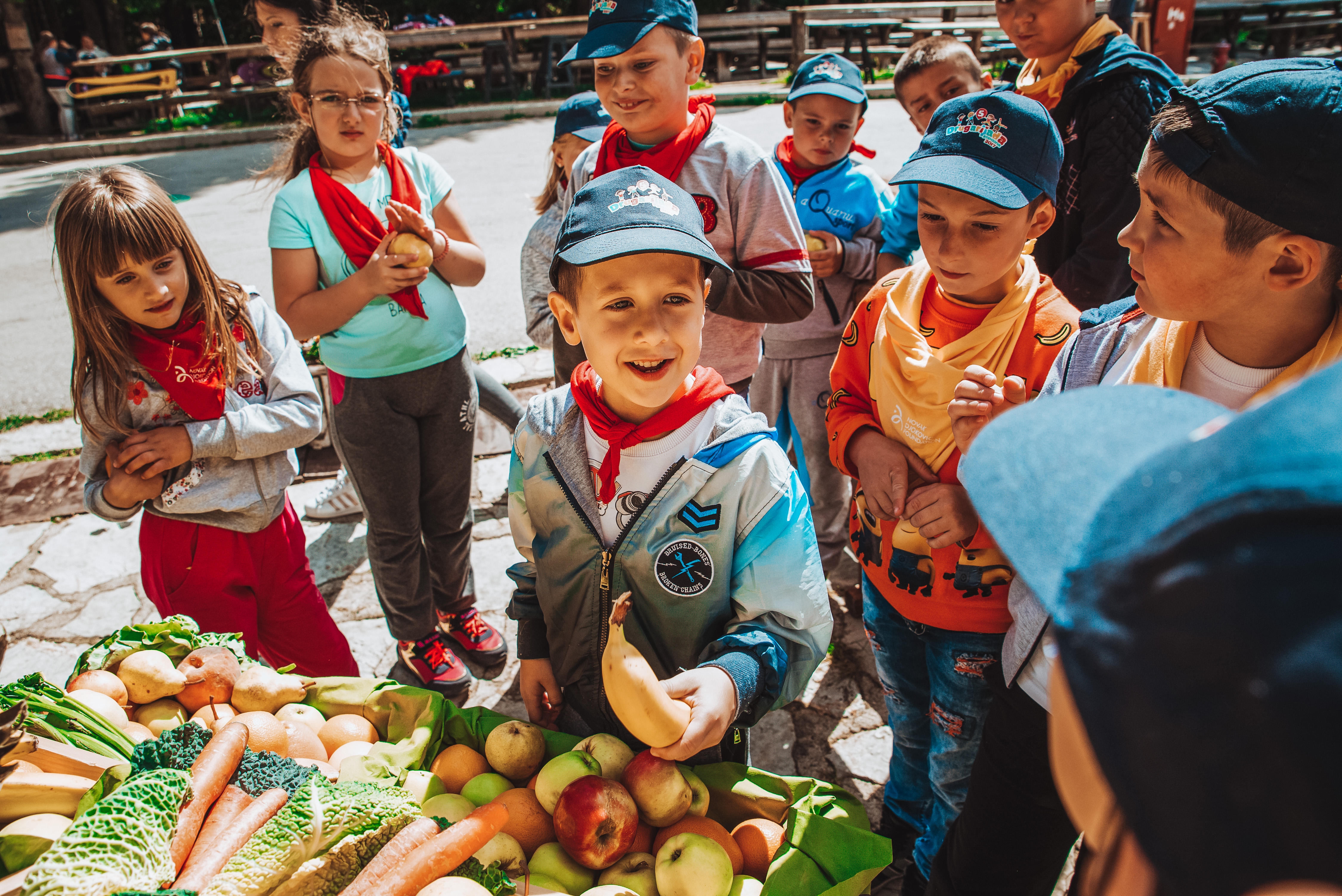Modern dietary habits of the population are based mostly on industrially processed foods. Children are victims of bad diet and food with excessive fat, savory snacks, and sweets, soft and carbonated drinks, all of which condition a weak immune system. Besides that, bad air quality, lack of physical activity and constant exposure of children to various pathogens additionally weaken their immune system and leave them vulnerable to fatigue and illnesses. Weak immunity represents inadequate defense from infections or more severe forms of epidemics with a wider reach, such as the one the entire world is battling – Coronavirus.
Healthy diet – strong immunity
Good, proper diet is a very important element of good immunity, which protects children against illnesses naturally and provides them with good health. Nutritional deficiencies can lead to chronic immune problems. Specifically, bacteria and viruses find suitable conditions for their development if the diet lacks substances that stimulate a strong immune system, such as vitamins, minerals and essential fatty acids.
Fresh fruits and vegetables are the best sources of vitamins and antioxidants.
It is scientifically proven that certain types of fruits and vegetables contain phytochemicals that boost immune system function.

With the goal of promoting healthy eating habits among children, the Novak Djokovic Foundation created the “ABC of Better me” project that aims to educate not only children on this important topic, but also their teachers and parents.
The power of minerals
The most important immunity-stimulating minerals are selenium, zinc, iron, copper, magnesium, and their sources are fresh fruits and vegetables, nuts, raw seeds, whole grains.
The minerals selenium and zinc are indispensable for immunity as they are needed to build many enzymes that protect the body from free radicals.
Zinc increases the production of white blood cells that fight infection, helps create antibodies, increases the number of T cells that fight microorganisms. In children, zinc reduces the incidence of acute respiratory infections. The sources of zinc are raw pumpkin seeds, oysters, enriched cereals, beef, turkey, beans.
One of the richest sources of selenium and an immunity enhancer is garlic.
It has antibiotic properties and inhibits many viruses. It is most effective when eaten raw. Onions and garlic contain components that reduce inflammatory processes. Flavonoids in onions participate with vitamin C in the destruction of bacteria, which is why it is an indispensable addition to soups and various dishes. Mustard, peppers, garlic, and onions contain mucolytic substances that dilute dense secretions in the respiratory tract.
Group B vitamins must be taken daily. They are lost during the process of peeling, pureeing, and cooking fruits and vegetables. Rich sources of B vitamins are whole grain cereals, legumes, nuts, grains, liver, lean meat, and green leafy vegetables.
Vitamin C increases the production of white blood cells, which fight infections, increases the level of interferons – antibodies that coat the surface of cells, preventing viruses from entering them. It reduces the risk of cardiovascular disease and increases the level of HDL (good) cholesterol, lowers the level of bad – LDL cholesterol.
It does not accumulate in the body and must be consumed daily.
It is a powerful antioxidant – protects against dangerous free radicals. The sources of this vitamin are fresh fruits and vegetables, juices of fresh fruits and vegetables, which are immediately absorbed.

The most important immunity-stimulating minerals are selenium, zinc, iron, copper, magnesium, and their sources are fresh fruits and vegetables, nuts, raw seeds, whole grains.
Vitamin E is an antioxidant and simulator of the immune system and the production of immune cells, which produce antibodies for the destruction of bacteria. It reduces the risk of cardiovascular disease. Natural sources are germs of cereals, raw seeds, kernels, and raw squeezed herbal oils.
Carotenoids are a group of provitamins contained in orange fruits and vegetables and green leafy vegetables. Beta carotene increases the number of cells that fight infections and is a powerful antioxidant in the fight against free radicals. The body converts beta carotene into vitamin A, which has an anticancer and immuno-stimulating effect.
Carrots contain about two hundred different carotenoids, and one of them is beta carotene.
Brassica vegetables (broccoli, kale, sprouts, cabbage) and spinach are sources of Vitamin K, an important ally in bone mineralization and maintenance of bone health. Spinach also contains calcium, sodium, phosphorus, manganese, copper, zinc, iodine, cobalt. Due to the presence of cellulose, spinach is good for digestion and cleansing of the body.
Bee pollen is rich in enzymes and other potent immunity-enhancing nutrients.
Plants naturally found, from clean habitats: nettle, dandelion and wild onion, which are in season now, are excellent sources of vitamins, carotenoids and minerals of iron, potassium, have anti-allergic (nettle) and immuno-stimulatory effects.
Since the physical activity of children outdoors contributes to better immunity, vitamin D synthesis and influences calcium absorption and builds up the bone and joint system, it is very important what foods to offer to children and how to exercise their nutrition daily, in this period of severe pandemic. And that will be the next topic of my blog. Keep following us!












